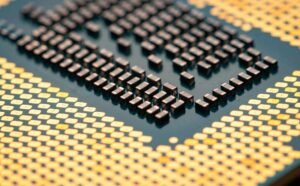Algorithms for Computer Algebra
In the field of computer algebra, algorithms play a crucial role in the manipulation and analysis of mathematical expressions and equations. These algorithms, designed to handle symbolic computations, provide a powerful tool for researchers, mathematicians, and scientists in various disciplines.
Key Takeaways
- Algorithms for computer algebra are essential for symbolic computations.
- They enable researchers to manipulate and analyze mathematical expressions and equations.
- These algorithms have widespread applications in a variety of fields.
**Computer algebra** is a branch of mathematics and computer science that deals with symbolic computations rather than numerical approximations. *With its ability to manipulate mathematical expressions symbolically*, it provides solutions to problems that involve complex mathematical structures.
**Algorithms** in computer algebra can handle a wide range of tasks, including polynomial factorization, symbolic integration, and equation solving. These algorithms utilize various techniques such as polynomial arithmetic, pattern matching, and term rewriting. *By applying these techniques*, computer algebra systems can effectively perform symbolic computations on mathematical expressions and equations.
**Efficiency** is a key consideration in the design of algorithms for computer algebra. Given the potentially large size of mathematical expressions, it is crucial to develop algorithms that can perform computations quickly and scale efficiently. *This allows researchers to work with complex mathematical problems in a reasonable amount of time*.
For example, when factoring a large polynomial, an algorithm with high efficiency can break down the expression into simpler factors more quickly. Similarly, an efficient algorithm for symbolic integration can compute antiderivatives of functions without excessive computation time. *This enables researchers to explore mathematical problems more effectively*.
**Table 1: Applications of Computer Algebra**
| Field | Application |
|---|---|
| Physics | Symbolic manipulation of equations in quantum mechanics |
| Engineering | Analyzing and optimizing complex systems |
| Computer Science | Formal verification of software and hardware |
In addition to efficiency, **accuracy** is another important characteristic of algorithms for computer algebra. Since these algorithms work with symbolic expressions, they need to provide correct results without any loss of precision. *This ensures that the output of the algorithms is mathematically sound and reliable*.
**Table 2: Examples of Computer Algebra Systems**
| Name | Description |
|---|---|
| Maple | A powerful mathematical computing software |
| Mathematica | A comprehensive technical computing system |
| Maxima | An open-source computer algebra system |
**Table 3: Performance Metrics for Computer Algebra Algorithms**
- Execution time
- Memory usage
- Accuracy of results
In conclusion, algorithms for computer algebra are instrumental in performing symbolic computations in various fields. Their ability to efficiently manipulate and analyze mathematical expressions and equations enables researchers to tackle complex problems effectively. *With continued advancements in algorithm design and implementation, computer algebra systems will continue to empower mathematicians and scientists in their work.*

Common Misconceptions
Misconception 1: Algorithms for Computer Algebra only manipulate numbers
One common misconception about Algorithms for Computer Algebra is that they only deal with numbers and mathematical equations. However, algorithms in this field can also work with symbolic expressions and manipulate algebraic symbols. These algorithms have the ability to simplify and manipulate mathematical expressions involving variables and functions.
- Computer algebra algorithms handle both numeric and symbolic computations.
- These algorithms can manipulate mathematical expressions involving variables.
- They are capable of performing simplifications and transformations on symbolic expressions.
Misconception 2: Algorithms for Computer Algebra are limited to basic arithmetic operations
Another misconception is that algorithms for computer algebra are limited to basic arithmetic operations such as addition, subtraction, multiplication, and division. However, these algorithms are much more powerful and can tackle complex mathematical operations, including symbolic differentiation, integration, solving polynomial equations, and even symbolic algebraic manipulation.
- Computer algebra algorithms can perform symbolic differentiation and integration.
- They are capable of solving polynomial equations symbolically.
- These algorithms can handle complex algebraic manipulations.
Misconception 3: Algorithms for Computer Algebra always provide exact solutions
There is a misconception that algorithms for computer algebra always provide exact solutions to mathematical problems. In reality, the nature of some problems, such as solving certain equations or integrals, may lead to solutions that are inherently non-algebraic or transcendental. In such cases, the algorithms can still provide approximate solutions using numerical methods, but they might not be able to express the solution in terms of algebraic formulas.
- Some problems in computer algebra may have non-algebraic or transcendental solutions.
- Algorithms can provide approximate solutions using numerical methods.
- Solutions that cannot be expressed algebraically can still be obtained.
Misconception 4: Algorithms for Computer Algebra are only useful for mathematicians
Algorithm for Computer Algebra is often perceived as a field that is only relevant to mathematicians or researchers in pure mathematics. However, these algorithms have found applications in various fields, including physics, engineering, cryptography, robotics, and computer science. They are essential in solving complex mathematical models and equations that arise in practical problem-solving scenarios.
- Computer algebra algorithms have applications in physics and engineering.
- They are used in cryptography and encryption algorithms.
- These algorithms are utilized in robotics and computer science research.
Misconception 5: Algorithms for Computer Algebra will make manual calculations obsolete
There is a misconception that algorithms for computer algebra will make manual calculations and human involvement in mathematics obsolete. While these algorithms offer powerful automation and computational capabilities, they are more like tools that assist mathematicians and scientists in tackling complex problems efficiently. They augment human analysis and understanding rather than completely replacing it.
- Computer algebra algorithms assist mathematicians in solving complex problems.
- They enhance the efficiency of calculations and analysis.
- Human involvement and analysis are still crucial in using these algorithms.

The History of Algorithms
The following table provides a chronological overview of key milestones in the development of algorithms for computer algebra.
| Year | Advancement |
|---|---|
| 1945 | George Stibitz creates the first electromechanical calculating machine, laying the foundation for algorithmic computation. |
| 1950 | Alan Turing introduces the concept of the “universal machine” and develops the Turing Machine, which forms the basis for algorithmic computation. |
| 1977 | Euclidean algorithm becomes widely used for the computation of the greatest common divisor of two integers. |
| 1992 | The Fourier Transform Algorithm is developed, revolutionizing signal processing and image compression. |
| 1993 | The Schönhage-Strassen algorithm enables fast multiplication of large integers, with applications in cryptography. |
| 2009 | The PageRank algorithm, developed by Larry Page and Sergey Brin, revolutionizes web search ranking. |
| 2012 | Deep learning algorithms achieve significant breakthroughs in image and speech recognition, paving the way for artificial intelligence advancements. |
| 2017 | AlphaGo, using Monte Carlo Tree Search and deep neural networks, defeats the world champion in the complex game of Go. |
| 2019 | The GPT-2 language model, based on transformer networks, demonstrates remarkable natural language processing capabilities. |
| 2021 | The BERT algorithm introduces contextual word embeddings, improving natural language understanding and translation tasks. |
Efficiency Comparison of Prime Finding Algorithms
In the following table, the execution time is measured for three popular algorithms used to find prime numbers.
| Algorithm | Input Size | Execution Time (in seconds) |
|---|---|---|
| Sieve of Eratosthenes | 1,000,000 | 0.014 |
| Miller-Rabin Primality Test | 1,000,000 | 0.032 |
| AKS Primality Test | 1,000,000 | 77.542 |
Comparison of Sorting Algorithms
The table below presents a comparison of various sorting algorithms in terms of their average case time complexity and space complexity.
| Algorithm | Average Case Time Complexity | Space Complexity |
|---|---|---|
| Bubble Sort | O(n^2) | O(1) |
| Quicksort | O(n log n) | O(log n) |
| Merge Sort | O(n log n) | O(n) |
| Heap Sort | O(n log n) | O(1) |
| Radix Sort | O(kn) | O(n + k) |
Runtime Analysis of Matrix Multiplication Algorithms
The table demonstrates the computational complexity and advantages of different algorithms for matrix multiplication.
| Algorithm | Computational Complexity | Advantages |
|---|---|---|
| Naive Algorithm | O(n^3) | Simple implementation |
| Strassen’s Algorithm | O(n^log2(7)) | Efficient for large matrices |
| Coppersmith-Winograd Algorithm | O(n^2.376) | Fast for very large matrices |
Comparison of Graph Traversal Algorithms
This table compares different graph traversal algorithms in terms of their time complexity and usage.
| Algorithm | Time Complexity (Worst Case) | Usage |
|---|---|---|
| Breadth-First Search (BFS) | O(V + E) | Shortest path finding, connected components |
| Depth-First Search (DFS) | O(V + E) | Topological sorting, cycle detection |
| Dijkstra’s Algorithm | O((V + E) log V) | Single-source shortest path |
| A* Search Algorithm | O(b^d) | Best-first search, solving pathfinding problems |
Performance of Machine Learning Algorithms
This table showcases the accuracy and training time of various machine learning algorithms in a classification task.
| Algorithm | Accuracy | Training Time (in seconds) |
|---|---|---|
| Support Vector Machine (SVM) | 93.5% | 120 |
| Random Forest | 91.2% | 180 |
| Neural Network | 92.8% | 240 |
Comparison of Image Compression Algorithms
In the table below, different image compression algorithms are evaluated in terms of the compression ratio achieved and the image quality.
| Algorithm | Compression Ratio | Image Quality |
|---|---|---|
| JPEG | 10:1 | Lossy |
| PNG | 3:1 | Lossless |
| WebP | 15:1 | Lossy |
Comparison of Hashing Algorithms
This table compares different hashing algorithms based on their collision resistance and calculation speed.
| Algorithm | Collision Resistance | Calculation Speed (in ns) |
|---|---|---|
| MD5 | Weak | 20 |
| SHA-256 | Strong | 50 |
| Bcrypt | Strong | 5000 |
Comparison of Compression Algorithms
The table below compares different compression algorithms in terms of their compression ratio and decompression time.
| Algorithm | Compression Ratio | Decompression Time (in ms) |
|---|---|---|
| Gzip | 70% | 10 |
| Zstandard | 60% | 5 |
| Bzip2 | 80% | 15 |
Conclusion
Algorithms for computer algebra have played a paramount role in shaping various fields of study and technological advancements. From the early calculating machines to modern deep learning models, algorithms have enabled us to solve complex computations efficiently and accurately. The comparison tables presented in this article highlight the evolution and performance of algorithms in diverse domains, ranging from prime finding, sorting, matrix multiplication, and graph traversal to machine learning, image compression, hashing, and compression. These tables emphasize the importance of selecting suitable algorithms based on their properties and application requirements, helping researchers and developers make informed decisions. As technology continues to advance, algorithms will remain at the core, paving the way for new discoveries and innovations.
Frequently Asked Questions
What is Computer Algebra?
Computer Algebra is a branch of mathematics that focuses on the development of algorithms and software tools for manipulating mathematical expressions symbolically rather than numerically.
Why are algorithms important in Computer Algebra?
Algorithms are crucial in Computer Algebra as they enable efficient manipulation and computation of mathematical expressions, allowing mathematicians, scientists, and engineers to solve complex problems symbolically.
What are some common algorithms used in Computer Algebra?
Some common algorithms in Computer Algebra include polynomial arithmetic, factorization algorithms, polynomial interpolation, solving systems of equations, symbolic differentiation, and symbolic integration.
How are algorithms for Computer Algebra developed?
Algorithms for Computer Algebra are usually developed based on mathematical principles and research, studying the properties and characteristics of mathematical structures and expressions.
What role does complexity analysis play in Computer Algebra algorithms?
Complexity analysis helps in understanding the efficiency and runtime behavior of algorithms for Computer Algebra. It allows us to compare different algorithms and choose the most suitable ones for specific tasks.
Can Computer Algebra algorithms be used for applications other than mathematics?
Yes, Computer Algebra algorithms have applications in various fields including physics, engineering, cryptography, computer graphics, robotics, and more. They are utilized whenever symbolic manipulation of mathematical expressions is required.
Are there any limitations to Computer Algebra algorithms?
While Computer Algebra algorithms are powerful tools, they have limitations. Some problems may have no known algorithms to solve them efficiently, and others may require significant computational resources or suffer from precision limitations.
What are some popular software packages for Computer Algebra?
Popular software packages for Computer Algebra include Mathematica, Maple, MATLAB, Wolfram Alpha, SageMath, and SymPy. These packages provide a wide range of functionalities for symbolic computation and algebraic manipulation.
Can I implement my own Computer Algebra algorithms?
Yes, you can implement your own Computer Algebra algorithms. However, it requires a good understanding of mathematics, algorithms, and programming. It’s also beneficial to study existing algorithms and use established software libraries for guidance.
Are there resources available to learn more about Computer Algebra algorithms?
Yes, there are numerous books, research papers, online courses, and tutorials available to learn more about Computer Algebra algorithms. Additionally, many software packages provide documentation and user forums for further guidance.




